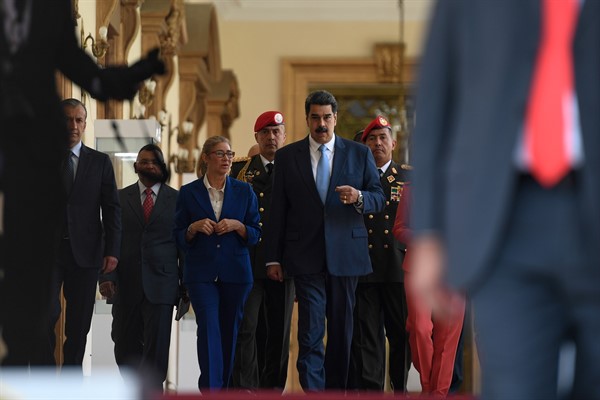The U.S. Justice Department’s indictment of Venezuelan President Nicolas Maduro in March did not go over well at Miraflores Palace, the president’s official workplace and residence in Caracas. In remarks just hours after the indictment was announced, Maduro swatted away the allegations of drug trafficking and money laundering, and assailed President Donald Trump as a “racist cowboy” and “New York mafia con artist.”
Even many of Maduro’s critics in the United States were quick to question the move. Understandably, they fear the criminal charges undermine negotiations between Maduro and his domestic opponents, including Juan Guaido, the opposition leader who is recognized as Venezuela’s legitimate interim president by the United States and dozens of other governments.
In particular, opponents of the indictment assailed its timing. U.S. prosecutors announced the charges a few days before the State Department unveiled a new proposal for a democratic transition in Venezuela that calls for Maduro’s resignation and prompt presidential and legislative elections. The conflicting tactics hinted at internal disagreements—or at least disarray.

